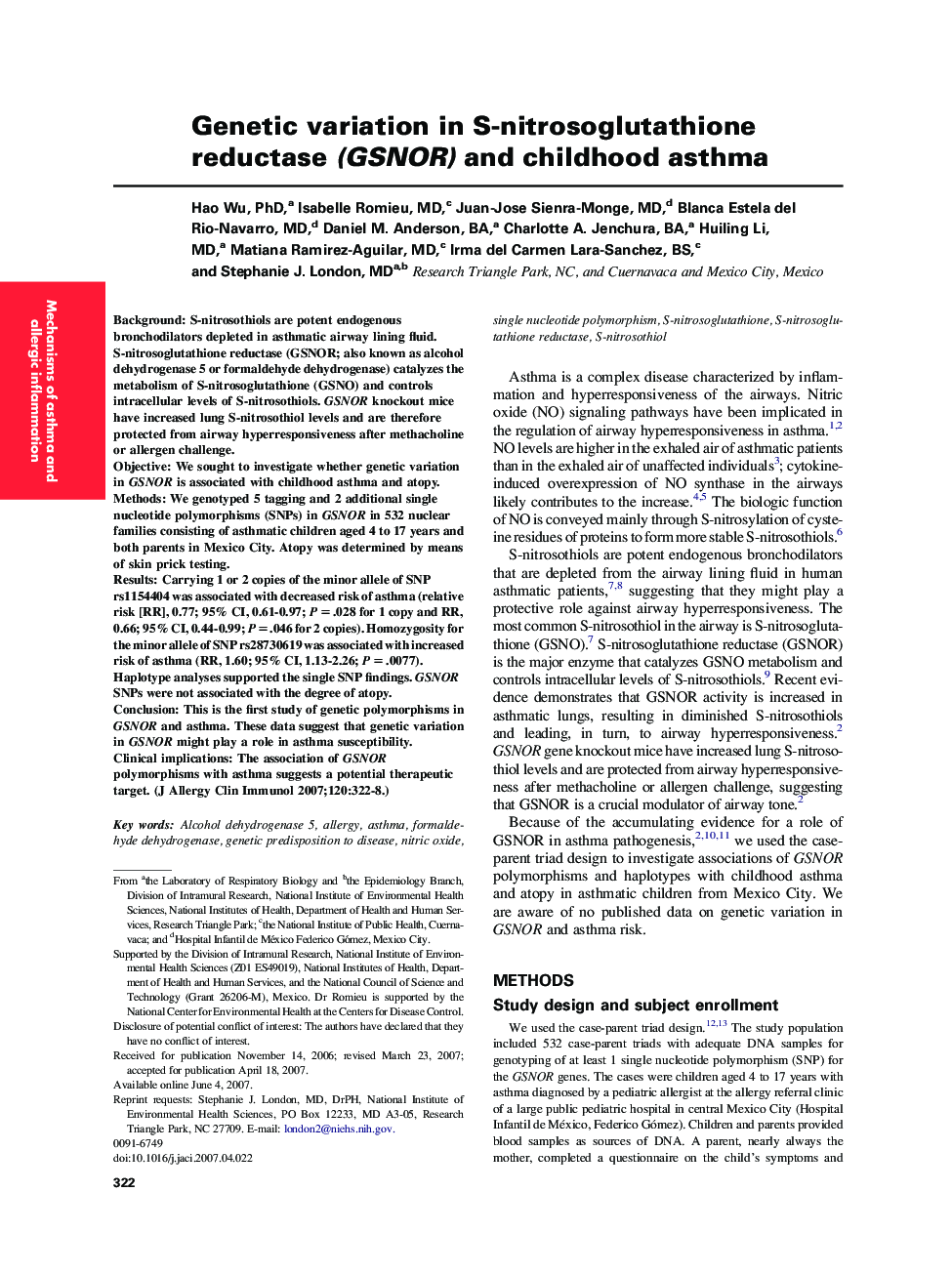| Article ID | Journal | Published Year | Pages | File Type |
|---|---|---|---|---|
| 3201723 | Journal of Allergy and Clinical Immunology | 2007 | 7 Pages |
BackgroundS-nitrosothiols are potent endogenous bronchodilators depleted in asthmatic airway lining fluid. S-nitrosoglutathione reductase (GSNOR; also known as alcohol dehydrogenase 5 or formaldehyde dehydrogenase) catalyzes the metabolism of S-nitrosoglutathione (GSNO) and controls intracellular levels of S-nitrosothiols. GSNOR knockout mice have increased lung S-nitrosothiol levels and are therefore protected from airway hyperresponsiveness after methacholine or allergen challenge.ObjectiveWe sought to investigate whether genetic variation in GSNOR is associated with childhood asthma and atopy.MethodsWe genotyped 5 tagging and 2 additional single nucleotide polymorphisms (SNPs) in GSNOR in 532 nuclear families consisting of asthmatic children aged 4 to 17 years and both parents in Mexico City. Atopy was determined by means of skin prick testing.ResultsCarrying 1 or 2 copies of the minor allele of SNP rs1154404 was associated with decreased risk of asthma (relative risk [RR], 0.77; 95% CI, 0.61-0.97; P = .028 for 1 copy and RR, 0.66; 95% CI, 0.44-0.99; P = .046 for 2 copies). Homozygosity for the minor allele of SNP rs28730619 was associated with increased risk of asthma (RR, 1.60; 95% CI, 1.13-2.26; P = .0077). Haplotype analyses supported the single SNP findings. GSNOR SNPs were not associated with the degree of atopy.ConclusionThis is the first study of genetic polymorphisms in GSNOR and asthma. These data suggest that genetic variation in GSNOR might play a role in asthma susceptibility.Clinical implicationsThe association of GSNOR polymorphisms with asthma suggests a potential therapeutic target.
